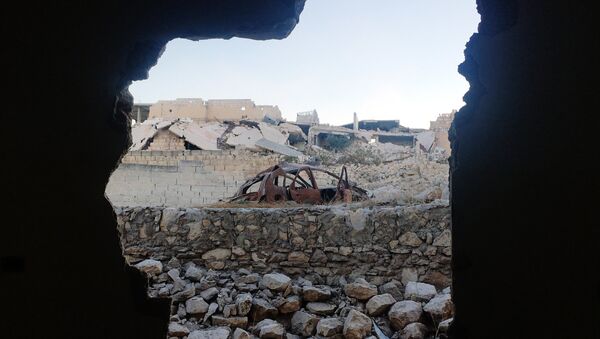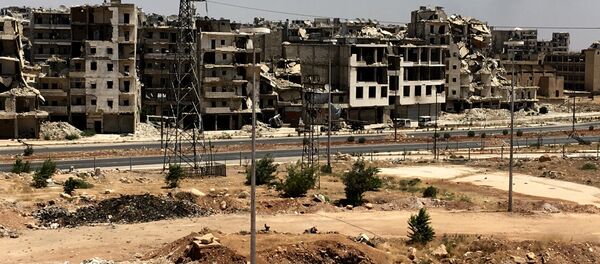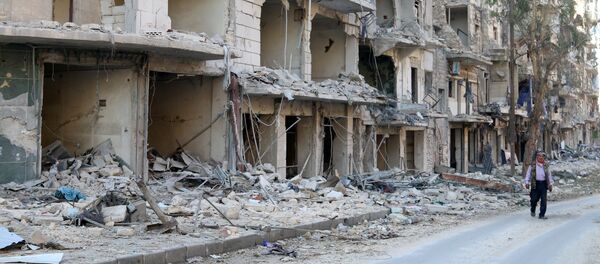"Samples taken by Russian officers of the Scientific Center of Radiational, Chemical and Biological Security at the site proved that militants [in Aleppo] used chlorine as a poisonous gas," ministry's spokesman Maj. Gen. Igor Konashenkov said.
According to Konashenkov, militants in Aleppo have started to use chlorine against Syrian servicemen and civilians more often. However, none of French or British politicians who publicly voice concern over the situation in Aleppo pay attention to such crimes.
"Precisely, they want to see only Syrian authorities as those responsible for it [chemical weapons' use]," he said.
"As a result of the attack, some 30 servicemen from the 415th battalion of the 115th division of the Republican Guard suffered poisoning of various degrees. Most of them were sent to a hospital in Aleppo."
The Sunday's attack is the third chemical attack by militants in Aleppo in the past two weeks.
The Russian general added that the Organization for the Prohibition of Chemical Weapons (OPCW) experts should investigate chemical weapons' use in Aleppo.
Despite numerous reports of militants' use of chemical weapons, the OPCW-UN Joint Investigative Mechanism (JIM) expert panel recently released the fourth report, which, in particular, claimed that the government of Syrian President Bashar Assad had used chemical weapons at least three times in the country throughout 2014-2015. On Saturday, the Russian Foreign Ministry expressed regret over the OPCW decision.
Chlorine is a gas of yellow-green color with a strong smell that is 2.5 times heavier than air. Chlorine gas is dangerous for human health.




